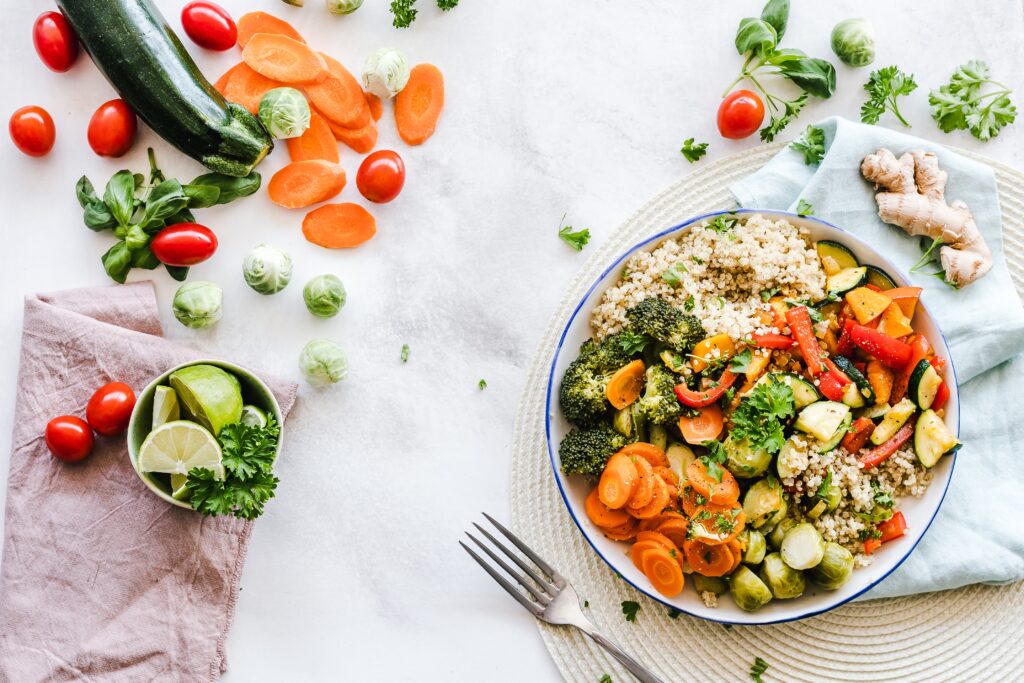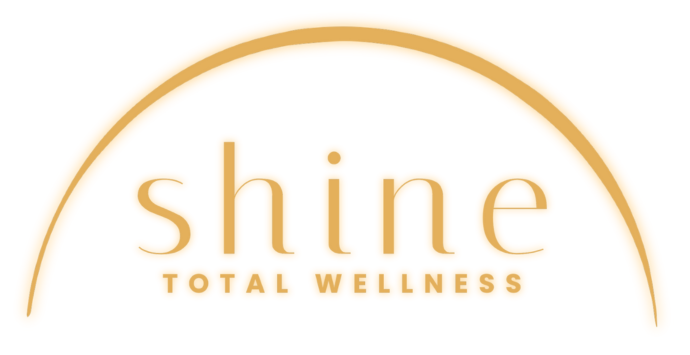
Is a plant based or vegan diet best for pregnancy? This is a question I’m asked all the time because I work almost exclusively with women who are trying to conceive and pregnant. There’s so much much information, and misinformation, out there about the best type of diet to follow when you’re pregnant. I get I see a lot of women who are trying to conceive and pregnant – that’s almost exclusively who I work with. Many women come into our first session already having pared down their diet to one that’s mostly plant based, meaning they’re excluding animal foods entirely or they’re minimizing them. And they want to know if a vegan pregnancy diet is beneficial or if they’re missing out. My answer to whether a vegan diet is best for pregnancy is no. Women in their reproductive years, and especially pregnant women, are not best served by vegan diets. In this post we’ll explore why and dispel some of the myths I commonly see in the media and social media about vegan pregnancy diets.
Modern Humans Evolved Because of Eating Animals
First of all, we evolved eating animals. Humans have been eating animal foods for literally hundreds of thousands of years, and in fact, including animal fats and proteins in our diet is one of the reasons we are who we are today. Removing meat, eggs, and fish from our diets is a step backwards evolutionarily speaking. Since the food pyramid was introduced in the 1960’s Americans have been eating less animals and more grains and vegetable oils to replace those calories. What’s happened? Chronic disease rates have skyrocketed, obesity has increased significantly, fertility rates have declined, and for the current generation, life expectancy is shorter than it is for our parents’ generation. We already know that instructing people, especially women and children, to replace animal foods with plants leads to poorer health outcomes and an increase in micronutrient deficiencies. Which brings me to my next point.
Animal Foods are More Nutrient Dense
Animal foods are significantly more nutrient dense than plant foods, meaning they give you more bang for your buck. Not only do they normally contain higher levels of key vitamins and minerals, they also provide these micronutrients in forms that are more bioavailable. Bioavailable means your body can better absorb and use those nutrients. This is really really important when it comes to pregnancy because your body needs extra vitamins and minerals. It’s going to shuttle some to your baby and some to you. At the end of your pregnancy you’re going to be depleted if, for example, you’re only absorbing 5% of the iron that you’re getting from your food. This potentially poses serious health risks. Let’s stick with iron as an example. Iron deficiency during pregnancy is a serious risk. Anemia is the most common micronutrient deficiency in pregnant women and if your levels are low going into birth you’re at increased risk for postpartum hemorrhage. In fact, if you’re my client, I want you going into birth with a very specific minimum ferritin level to reduce this risk and ensure you don’t become further depleted if you plan to breastfeed. That’s just one example of how higher levels of more bioavailable micronutrients is helpful during pregnancy.
One micronutrient we often think about as being more abundant in plant foods is folate. Pregnant women know how important folate intake is for baby’s neural tube and spinal development. However, what most people don’t know is that the food highest in folate is actually liver, especially chicken liver! Eggs are another great source of bioavailable folate. Liver and eggs are great examples of foods that cover so many different micronutrient bases, whereas if you’re getting your folate from a food like spinach, it’s not going to provide as many of they other important micronutrients needed during pregnancy. Including key animal foods in your diet allows you to get the nutrients you need in one place, which makes a healthy pregnancy diet easier. As an example, eggs and liver will also provide much of the bioavailable iron, vitamin B12, choline, omega-3 fats, and fat soluble vitamins like D, E, A, and K that we need during pregnancy, just to name a few.
Animal Foods Help You Meet Fat and Protein Needs
When we reduce the animal foods in our diets we end up eating a lot more carbohydrates. I’m not saying everyone who goes plant based eat bread, pasta, and crackers all day – although some definitely do! However, animal foods typically contain a protein paired with a fat. Plant foods, even plant sources of protein like beans, lentils, and soy, are more protein paired with a carb. That leaves us with less fats and more carbs in our diet. Those fats are really important for sex hormone production, so when we’re trying to conceive and pregnant we need those healthy fats. Fats are also crucial for your baby’s development, especially their brain and organ development. Plant based proteins offer significantly less protein, and less absorbable forms of protein protein, than animal foods, partly because plants come with antinutrients that block the absorption of some of the protein and nutrients in them. This can be a problem when you consider pregnant women need a minimum of 80 grams of protein per day for the first half of pregnancy and 100 grams per day for the second half. It’s much easier to meet those protein requirements when we’re including the big sources of protein – animal foods – in the diet. You’re growing an entire organ from scratch, the placenta, plus you’re growing a human, and the skin, bones, organs, and nails of that human require enough protein.
Sex Hormones Are Made From Cholesterol!
Another big benefit of animal foods is the cholesterol! Cholesterol has been a dirty word in this country since around the time the Food Pyramid was introduced, but it really shouldn’t be. That was all based on outdated studies and pseudo-science that’s been harming Americans ever since. Sex hormones are steroid hormones, meaning they require cholesterol to be made. This is especially important for women since we’re more hormonally complicated than men, and it’s even more important for women who are trying to conceive and pregnant. Cholesterol is so important that our bodies will actually produce it in the liver, but I don’t want you becoming so depleted that you have to rely on endogenous sources. I often see progesterone increase in women who are trying to conceive simply from including more dietary animal fats. This is not something that should be ignored, and it’s important to note that there is zero cholesterol in plant foods, even plant sources of saturated fat like coconuts.
Quality is Key
Of course when we’re talking about animal foods quality matters! I am not saying you should go get your animal protein and fat from Chik-Fil-A. Please don’t do that! When we’re talking about animals in the USA we really need to be cognizant of the source. Factory farmed mass produced animals are not a health food. We need to be looking for specific key words, which of course I dive deep into with my clients during our sessions, but we want animals that are eating their natural diets and were raised in a natural way. These animals will have what your body needs with none of the added junk you don’t want.
A Varied Diet is Best for Pregnancy
So the gist is that a varied diet is best for pregnancy. Just like you probably don’t want to go plant based during pregnancy, you don’t need to eat exclusively animals either. We want to include some key well sourced animal foods, ideally daily, and we also want to eat plenty of healthy plant foods. If you’re currently vegan, that may mean we’re having a conversation about reintroducing eggs and quality dairy or goat’s and sheep’s milk dairy back into your diet. If you’re a vegetarian, perhaps you’re comfortable reintroducing wild caught fatty fish, and grassfed beef or bison on occasion. It’s about being a nutrient seeker. I really like that term because it’s not dogmatic or based on labels of what you do or don’t eat. I think labels can be really dangerous and can keep people from growing and evolving. As you’ve now learned, the diet that’s best for pregnancy is one that includes quality sources of key micronutrients.
I work with women who are vegan and vegetarian all the time. I never tell women that they have to stop being vegan or vegetarian. That’s a personal choice. I was vegan myself for a decade and I understand that it’s a lifestyle choice. I just don’t want women to make that choice because they think they’re doing something beneficial for their health when it can actually have the opposite effect. Often there’s an education component that comes into play when we work together, however, if that’s your lifestyle and you don’t want to change, that’s ok. In that case you really want to work with a prenatal nutrition specialist to make sure you’re covering your macro and micronutrient bases through your diet as well as targeted supplements.
